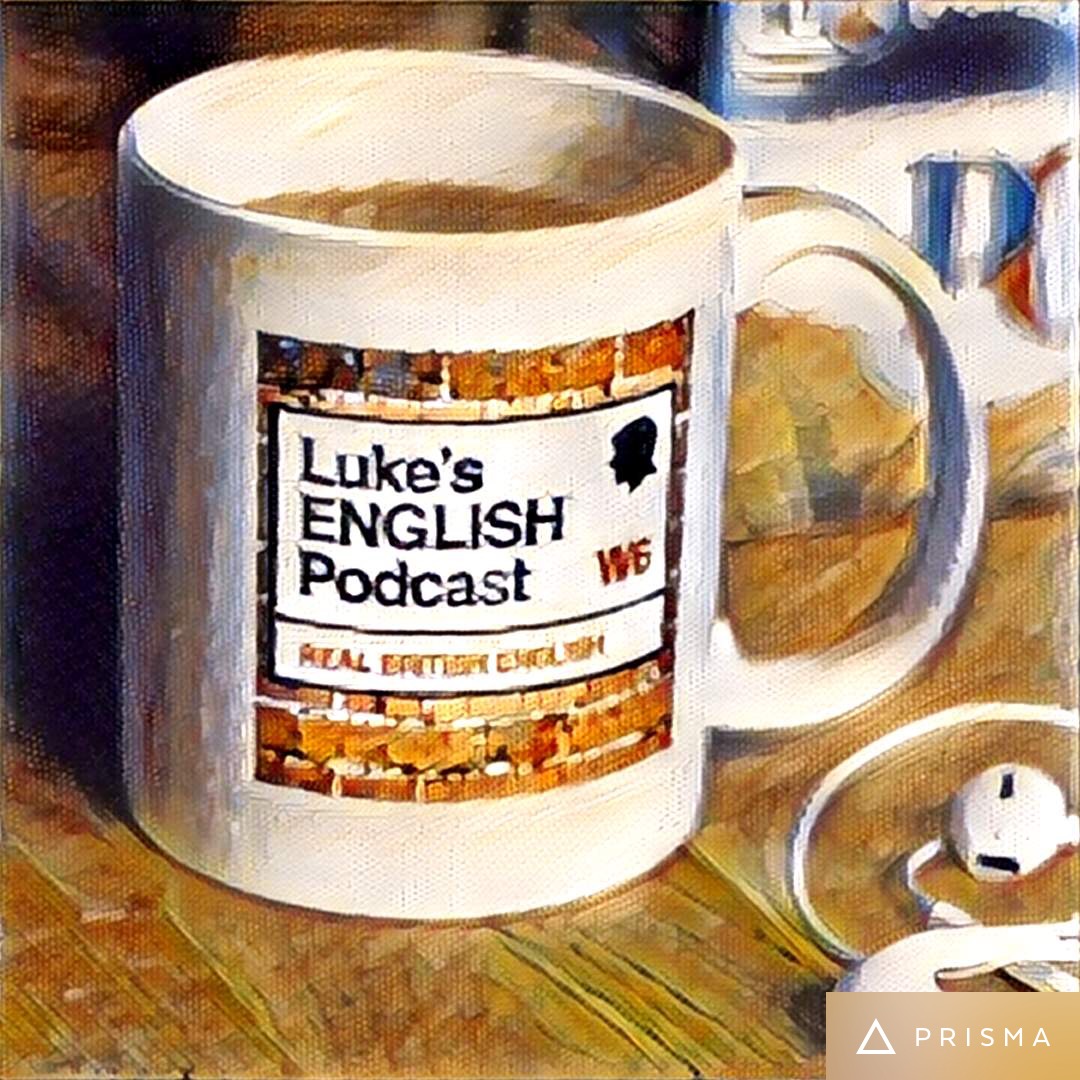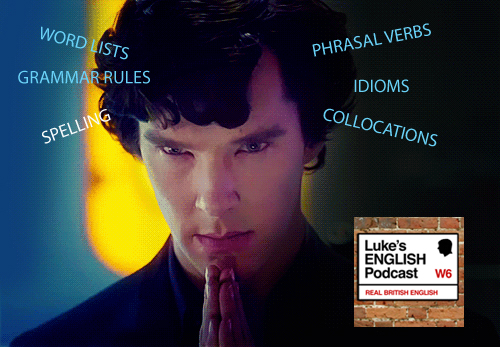Reading out loud can have lots of surprising benefits for our memory and our mental health. How can it also help with your English? In this episode I read an article to you, help you understand it and give comments on the importance of reading, both quietly in your head, and out loud. Video version and full transcript available.
Video Version (with on-screen text)
Read the article on the BBC Future website here https://www.bbc.com/future/article/20200917-the-surprising-power-of-reading-aloud
Download the full PDF transcript for this episode
Full Episode Transcript 👇
Hello listeners,
Welcome to this new episode. This one is about reading and the power of reading aloud (reading out loud) and I think it can definitely help you with your English in various ways. Stick with me, there’s a lot to discover here.
I found an article the other day on the BBC’s website and I thought it was really interesting and definitely something I could turn into an episode of this podcast.
I am going to read the article to you in this episode. You can read it with me if you like. The link for the article is in the description, or if you are watching the video version you will see the text on the screen.
I’ll help you understand it all, we’ll consider the main points being made by the writer, I’ll give my thoughts on how this all relates to learning English and I’ll point out some bits of vocabulary for you to learn along the way.
Reading out loud ← what does this mean?
Normally when we read, we read silently. We read in our heads. 📖👀
But when we read out loud we actually say the words we are reading with our voice so that other people can hear you. 🗣️ That’s what out loud means.
Aloud and out loud are synonyms.
- To read out loud (I had to read out loud in front of my class during my French lesson and it was a bit embarrassing)
- To say something out loud (Don’t say that out loud, it’s supposed be a secret!)
- To think out loud (What are you talking about? Oh, sorry, never mind, I’m just thinking out loud really)
- To laugh out loud (LOL)
The Article
The title of the article I found is The Surprising Power of Reading Aloud, and I found it in the “Future” section of the BBC’s website.
BBC Future https://www.bbc.com/future/
BBC Future is a section of the BBC website where you can read some really interesting articles about lots of different subjects.
The articles are written in an academic style (so we are looking at academic English here to an extent), but these articles are very readable and they are exactly the type of reading text that you might find in an IELTS reading test. You often find academic texts about scientific subjects, or history, or psychology in IELTS tests.
So, it would be really good practice for you to read articles like this on a regular basis, whether you are preparing for IELTS or you’re just interested in developing your English generally. The articles on BBC Future are quite advanced – they are for native English speakers, but with a good dictionary and a bit of motivation, they could really help your English.
I’m going to help you do that in this episode with this particular article. I’ll take you through it and will explain things.
Let’s get started.
Before we start reading, I’ve got two tasks for you (and they’re important)
1st task: Consider some questions
Here are some questions to get you thinking 🧐🤔💭
I want you to consider these questions because this will get you in the right mental space to understand the article we’re going to read. It’s important to do this because this is how you get your mind ready before you read. So, consider these questions (below).
If you like you can pause this episode after I say these questions in order to actually answer them, in your own head or out loud.
Saying your answers out loud would be the best thing to do – to practise your speaking and putting your thoughts into words. So, if you can do that, do that, right now, with these questions.
Questions to consider before reading
- When was the last time you read something in English? What was it, and why did you read it?
- When you read in English or in your first language, do you usually read silently in your head or do you read out loud? Why?
- In what situations do people sometimes read out loud?
- Do you think reading out loud is more or less common these days than it used to be?
Do people read out loud more these days, or did they do that more in the past?
Why could this be? - Can you remember a time when someone read something out loud to you?
What was the situation? How did it make you feel? - How about when you were a child? Can you remember any moments when someone read out loud to you? How do you feel about those memories?
- What do you think is better for your English – reading texts silently in your head, reading texts out loud, or listening to other people read out loud to you? Why?
2nd task: Read the text 📖
Here’s a reading task for you
Before I read this article to you, I want you to read it yourself. Twice.
🔗 link in the description 🔗
First, read the text silently, then try reading it out loud.
You don’t have to read the whole thing. Maybe just do the first few paragraphs if you prefer.
But try it. Go on.
Read it silently first, then read it out loud.
Try not to sound like a robot 🤖
Put some life into the reading ❤️🔥
If/When you read it out loud, consider these questions. you .
- Where are the pauses? Where should you pause when you read?
- Which words in each line should be stressed (emphasised)?
- Where does the voice go up and where does the voice go down?
- How would you read it out like a TV presenter or a university lecturer?
Imagine you are reading this out for an audience.
It might affect the way you read it. 🗣️
You can do that now. The link to the article is in the description.
Read it – first silently, and then out loud like a presenter.
I’ll let you pause the episode right now and do that. I’ll continue speaking to you again in a moment.
– – – –
This is where you pause to read the article
– – – –
OK, welcome back. I know some of you didn’t pause the episode and read the text, which is totally fine.
But some of you did. Nice one.
I wonder how it was for you.
Was difficult or not?
Was it difficult to read the text?
It’s a different experience isn’t it, reading it out loud.
It has its own challenges.
Unknown vocabulary, difficult pronunciation, understanding the overall flow and structure of the text.
Now, let me read the article to you. You can read it with me too, or just listen. It’s up to you.
I’ve broken the text into sections. I’ll read a section of the article, then paraphrase what I read, add my comments and explain some words. Then we’ll move to the next section.
Whenever there’s a break in the text like this, it’s the end of a section.
– – – – – – – – –
When that happens, I’ll stop and explain things, then we’ll move on to the next section.
You’ll see some words highlighted in bold. These are words that you might not know, so I’ll explain them as we go.
Try reading aloud with me to work on your pronunciation if you like.
BBC FUTURE: NEUROSCIENCE
Why you should read this out loud
By Sophie Hardach /ˈhædək/ – 18th September 2020
Most adults retreat into a personal, quiet world inside their heads when they are reading, but we may be missing out on some vital benefits when we do this.
For much of history, reading was a fairly noisy activity. On clay tablets written in ancient Iraq and Syria some 4,000 years ago, the commonly used words for “to read” literally meant “to cry out” or “to listen”.
“I am sending a very urgent message,” says one letter from this period. “Listen to this tablet. If it is appropriate, have the king listen to it.”
Only occasionally, a different technique was mentioned: to “see” a tablet – to read it silently.
Today, silent reading is the norm. The majority of us bottle the words in our heads as if sitting in the hushed confines of a library. Reading out loud is largely reserved for bedtime stories and performances.
But a growing body of research suggests that we may be missing out by reading only with the voices inside our minds. The ancient art of reading aloud has a number of benefits for adults, from helping improve our memories and understand complex texts, to strengthening emotional bonds between people. And far from being a rare or bygone activity, it is still surprisingly common in modern life. Many of us intuitively use it as a convenient tool for making sense of the written word, and are just not aware of it.
– – – – – 1/10 – – – – –
Colin MacLeod, a psychologist at the University of Waterloo in Canada, has extensively researched the impact of reading aloud on memory. He and his collaborators have shown that people consistently remember words and texts better if they read them aloud than if they read them silently. This memory-boosting effect of reading aloud is particularly strong in children, but it works for older people, too. “It’s beneficial throughout the age range,” he says.
MacLeod has named this phenomenon the “production effect”. It means that producing written words – that’s to say, reading them out loud – improves our memory of them.
– – – – – 2/10 – – – – –
The production effect has been replicated in numerous studies spanning more than a decade.
In one study in Australia, a group of seven-to-10-year-olds were presented with a list of words and asked to read some silently, and others aloud. Afterwards, they correctly recognised 87% of the words they’d read aloud, but only 70% of the silent ones.
In another study, adults aged 67 to 88 were given the same task – reading words either silently or aloud – before then writing down all those they could remember. They were able to recall 27% of the words they had read aloud, but only 10% of those they’d read silently. When asked which ones they recognised, they were able to correctly identify 80% of the words they had read aloud, but only 60% of the silent ones. MacLeod and his team have found the effect can last up to a week after the reading task.
– – – – – 3/10 – – – – –
Even just silently mouthing the words makes them more memorable, though to a lesser extent.
Researchers at Ariel University in the occupied West Bank discovered that the memory-enhancing effect also works if the readers have speech difficulties, and cannot fully articulate the words they read aloud.
MacLeod says one reason why people remember the spoken words is that “they stand out, they’re distinctive, because they were done aloud, and this gives you an additional basis for memory”.
We are generally better at recalling distinct, unusual events, and also, events that require active involvement.
For instance, generating a word in response to a question makes it more memorable, a phenomenon known as the generation effect.
Similarly, if someone prompts you with the clue “a tiny infant, sleeps in a cradle, begins with b”, and you answer baby, you’re going to remember it better than if you simply read it, MacLeod says.
– – – – – 4/10 – – – – –
Another way of making words stick is to enact them, for instance by bouncing a ball (or imagining bouncing a ball) while saying “bounce a ball”.
This is called the enactment effect. Both of these effects are closely related to the production effect: they allow our memory to associate the word with a distinct event, and thereby make it easier to retrieve later.
– – – – – 5/10 – – – – –
The production effect is strongest if we read aloud ourselves. But listening to someone else read can benefit memory in other ways. In a study led by researchers at the University of Perugia in Italy, students read extracts from novels to a group of elderly people with dementia over a total of 60 sessions. The listeners performed better in memory tests after the sessions than before, possibly because the stories made them draw on their own memories and imagination, and helped them sort past experiences into sequences. “It seems that actively listening to a story leads to more intense and deeper information processing,” the researchers concluded.
Reading aloud can also make certain memory problems more obvious, and could be helpful in detecting such issues early on.
In one study, people with early Alzheimer’s disease were found to be more likely than others to make certain errors when reading aloud.
– – – – – 6/10 – – – – –
There is some evidence that many of us are intuitively aware of the benefits of reading aloud, and use the technique more than we might realise.
Sam Duncan, an adult literacy researcher at University College London, conducted a two-year study of more than 500 people all over Britain during 2017-2019 to find out if, when and how they read aloud. Often, her participants would start out by saying they didn’t read aloud – but then realised that actually, they did.
“Adult reading aloud is widespread,” she says. “It’s not something we only do with children, or something that only happened in the past.”
Some said they read out funny emails or messages to entertain others. Others read aloud prayers and blessings for spiritual reasons. Writers and translators read drafts to themselves to hear the rhythm and flow. People also read aloud to make sense of recipes, contracts and densely written texts.
“Some find it helps them unpack complicated, difficult texts, whether it’s legal, academic, or Ikea-style instructions,” Duncan says. “Maybe it’s about slowing down, saying it and hearing it.”
– – – – – 7/10 – – – – –
For many respondents, reading aloud brought joy, comfort and a sense of belonging. Some read to friends who were sick or dying, as “a way of escaping together somewhere”, Duncan says. One woman recalled her mother reading poems to her, and talking to her, in Welsh. After her mother died, the woman began reading Welsh poetry aloud to recreate those shared moments. A Tamil speaker living in London said he read Christian texts in Tamil to his wife. On Shetland, a poet read aloud poetry in the local dialect to herself and others.
“There were participants who talked about how when someone is reading aloud to you, you feel a bit like you’re given a gift of their time, of their attention, of their voice,” Duncan recalls. “We see this in the reading to children, that sense of closeness and bonding, but I don’t think we talk about it as much with adults.”
– – – – – 8/10 – – – – –
If reading aloud delivers such benefits, why did humans ever switch to silent reading? One clue may lie in those clay tablets from the ancient Near East, written by professional scribes in a script called cuneiform /ˈkjuːnɪˌfɔːm/.
Over time, the scribes developed an ever faster and more efficient way of writing this script. Such fast scribbling has a crucial advantage, according to Karenleigh Overmann, a cognitive archaeologist at the University of Bergen, Norway who studies how writing affected human brains and behaviour in the past. “It keeps up with the speed of thought much better,” she says.
Reading aloud, on the other hand, is relatively slow due to the extra step of producing a sound.
“The ability to read silently, while confined to highly proficient scribes, would have had distinct advantages, especially, speed,” says Overmann. “Reading aloud is a behaviour that would slow down your ability to read quickly.”
– – – – – 9/10 – – – – –
In his book on ancient literacy, Reading and Writing in Babylon, the French assyriologist Dominique Charpin quotes a letter by a scribe called Hulalum that hints at silent reading in a hurry. Apparently, Hulalum switched between “seeing” (ie, silent reading) and “saying/listening” (loud reading), depending on the situation. In his letter, he writes that he cracked open a clay envelope – Mesopotamian tablets came encased inside a thin casing of clay to prevent prying eyes from reading them – thinking it contained a tablet for the king.
“I saw that it was written to [someone else] and therefore did not have the king listen to it,” writes Hulalum.
Perhaps the ancient scribes, just like us today, enjoyed having two reading modes at their disposal: one fast, convenient, silent and personal; the other slower, noisier, and at times more memorable.
In a time when our interactions with others and the barrage of information we take in are all too transient, perhaps it is worth making a bit more time for reading out loud. Perhaps you even gave it a try with this article, and enjoyed hearing it in your own voice?
– – – – – 10/10 – – – – –
Conclusion
As a language practice exercise, try reading texts out loud.
You don’t have to do it all the time, but simply trying to read a text out loud as if you are reading it to some people, can be a good exercise.
Research suggests that it could help you remember words more effectively. The production effect means – producing words (saying them out loud) makes a difference to your ability to remember them later. Even just mouthing words when you read them helps them to go into your brain.
So, read aloud and mouth words when you read them.
Also, being prompted with a clue helps you remember words. This is called the generation effect. This encourages me a lot, because it confirms things I have been doing as a teacher, including in LEP Premium episodes when I use little prompts to help you recall words. For you, you could always create your own clues to help you remember words or phrases, or play word games in English in which you define words and then have to guess which words they are. Do this with new vocabulary. Of course, you would need friends or language partners to play with.
Acting words out, or linking them to physical movements also helps you remember words. So, when trying to remember words, add a physical element somehow, even if it means imagining yourself doing the word or being in a certain physical space when thinking of new words. For example if the expression is “to be wary of doing something” – put your hand to your chin and pretend you are being nervous about something or reluctant to do it. Make a sound like “Naaaaaaah, I’m a bit wary of doing that”. Perhaps imagine yourself at the end of a dark street and say “I’m a bit wary of going down there on my own. I think I’ll take the main road.”
Listening to other people read to you also helps a lot. So, the conclusion here is just keep listening to LEP of course! I am sure this works when someone is just speaking to you as well, especially if you are involved and caught up in what they are saying. That’s what I’ve always thought and I am sure scientific research would suggest that it’s true. My hypothesis is that people will remember more L2 words when they are presented in a meaningful context. It’s pretty obvious really.
Reading aloud might be good for your mental health. It seems that the exercise can reveal signs of dementia. Maybe reading aloud does require quite a lot of brain work – not only are you reading and decoding the words, but your brain is involved in some motor exercise too – meaning, muscle work, movement work. Surely, making your brain multi-task like this can only be good as a way of keeping it active. Brain training, basically.
It’s a good way to keep your brain young.
Reading aloud also makes you feel quite good, especially if you do it with others. It could be a good exercise with other learners of English, or with your English teacher. Of course, don’t only read aloud, but include it as part of your regular English practice. It’s especially enjoyable if you are reading out some interesting texts, and try to mix it up – some non-fiction stuff and also some stories and so on.
When you read aloud, consider where you need to chunk the text, pause, emphasise and use intonation.
Reading texts out loud is something I often do with my students in class. I ask my students to work out where the pauses should be, which words to emphasise and where the voice goes up or down.
This exercise reveals things about the text, including the structure and the real meanings and intentions of the writer.
Try reading aloud from time to time. Also try reading out loud with me, at the same time as me sometimes (if there is a transcript with the episode). It might help you notice more aspects of the language in the text, help you remember it more, and help you practice your pronunciation as well as your reading. It might also just make you feel good.
What do you think?
- Leave your comments below.
- What have you been thinking while listening to this?
- Has it given you any ideas about learning English?
- Do you have anything to add?
Put your thoughts into English in the comment section.
A Premium Series
I’m also publishing a 3-part premium series all about the language in this episode. It’ll be available soon or maybe it’s already available now. I’m going to record them right away in fact. They are the next things I’m going to record.
In those premium episodes I will go through the vocabulary which I highlighted in the text again, and I’ll expand things with slightly more detailed explanations and examples, then I’ll test your memory of those words and phrases (with some prompts and some sentences with missing words) and give you a chance to practise pronouncing all the words in sentences.
There will also be an episode where we practise reading aloud some of the paragraphs from the text, with advice about where to pause, which words to emphasise and so on, with sentences to repeat after me.
To get those episodes, sign up to LEP Premium on Acast+. You can add the premium episodes to your podcasting app, and also access PDFs and video versions that way. www.teacherluke.co.uk/premium for the premium series focusing on the language in this episode.
That’s it for this episode, but I will be back soon with more things for you to listen to, including more stories which I would like to read to you, and conversations with guests, and all the other types of episode I like to present to you on my show.





